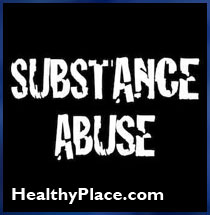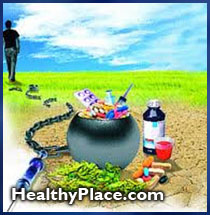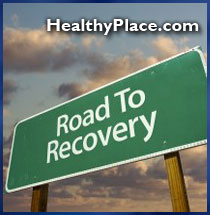Dual Diagnosis: Drug and Alcohol Abuse Treatment and Mental Health Issues
Treating Chemical Dependency and Co-Occuring Disorders
Our integrated treatment system addresses dual diagnosis (co-occuring substance abuse and mental health diagnosis) disorders simultaneously. Individualized treatment planning with certified, experienced counselors incorporates short and long-term goals to ensure that clients special needs are met. At the same time, continuing care planning assists the client in developing healthy strategies for maintaining sobriety after treatment.
Each dual diagnosis client consults with our staff physician to focus on adjusting treatment to fit their particular needs. In order to be effective, medications must be taken consistently. Often, addicts still "in the disease" have difficulties following through with medication schedules. At Support Systems Homes' treatment centers, when clients are prescribed medication, staff assist clients in developing a regular, consistent schedule that has the maximum potential of providing benefits.
 Support Systems Homes recognizes the importance of coordinating services for clients with co-occurring disorders. Our treatment center staff provide transportation to outside appointments, work with the client's mental health team, help the client access the necessary resources, and encourage family involvement in the process of recovery.
Support Systems Homes recognizes the importance of coordinating services for clients with co-occurring disorders. Our treatment center staff provide transportation to outside appointments, work with the client's mental health team, help the client access the necessary resources, and encourage family involvement in the process of recovery.
We provide the following CARF-accredited services for those with co-occuring chemical dependency and mental health diagnoses: Detoxification, Residential Treatment, Day Treatment, and Outpatient services. Sober living environments that provide social and recovery support are available as well. Dual diagnosis clients are also encouraged to participate in free lifetime aftercare and Alumni activities after treatment.
Those who struggle both with serious mental illness and substance abuse face problems of enormous proportions. Mental health services are often not well prepared to deal with patients having both afflictions. Often only one of the two problems is identified. If both are recognized, the individual may bounce back and forth between services for mental illness and those for substance abuse, or they may be refused treatment by each of them.
While the picture regarding dual diagnosis has not been very positive in the past, there are signs that the problem is being recognized and there is an increasing number of programs trying to address it. It is now generally agreed that as much as 50 percent of the mentally ill population also has a substance abuse problem. The drug most commonly used is alcohol, followed by marijuana and cocaine. Prescription drugs such as tranquilizers and sleeping medicines may also be abused. The incidence of abuse is greater among males and those in the aged 18 to 44. People with mental illnesses may abuse drugs covertly without their families knowing it. It is now reported that both families of mentally ill relatives and mental health professionals underestimate the amount of drug dependency among people in their care. There may be several reasons for this. It may be difficult to separate the behaviors due to mental illness from those due to drugs. There may be a degree of denial of the problem because we have had so little to offer people with the combined illnesses. Caregivers might prefer not to acknowledge such a frightening problem when so little hope has been offered.
Substance abuse complicates almost every aspect of care for the person with mental illness. First, these individuals are very difficult to engage in treatment. Diagnosis is difficult because it takes time to unravel the interacting effects of substance abuse and the mental illness. They may have difficulty being accommodated at home and may not be tolerated in community residences of rehabilitation programs. They lose their support systems and suffer frequent relapses and hospitalizations. Violence is more prevalent among the dually diagnosed population. Both domestic violence and suicide attempts are more common, and of the mentally ill who wind up in jails and prisons, there is a high percentage of drug abusers.
Given severe consequences of drug abuse for the mentally ill, it is reasonable to ask: "Why do they do it?" Some of them may begin to use drugs or alcohol for recreational use, the same as many other people do. Various factors may account for their continued use. Probably many people continue their use as a misguided attempt to treat symptoms of the illness or the side effects of their medications. By "self-medicating," they find that they can reduce the level of anxiety or depression -- at least for the short term. Some professionals speculate that there may be some underlying vulnerability of the individual that precipitates both mental illness and substance abuse. They believe that these individuals may be at risk with even mild drug use.
Social factors may also play a part in continued use. People with mental illnesses suffer from what has been called "downward drift." This means that as a consequence of their illness they may find themselves living in marginal neighborhoods where drug use prevails. Having great difficulty developing social relationships, some people find themselves more easily accepted by groups whose social activity is based on drug use. Some may believe that an identity based on drug addiction is more acceptable than one based on mental illness.
This overview of the problem of drugs and mental illness may not be a very positive one. However, there are some encouraging signs that better understanding of the problem and potential treatments are on the way. Just as consumers and families have faced other very troublesome problems in the past and developed adequate responses to them, they can also learn to deal with this one in a way that their lives become less troubled and better treatment is received.
Treatment Programs For Those with Dual Diagnoses As many have probably discovered, service systems have not been well designed with this population in mind. Typically a community has treatment services for people with mental illness in one agency and treatment for substance abuse in another. Clients are referred back and forth between them in what some have called "ping-pong" therapy. What are needed are "hybrid" programs that address both illnesses together. Development of these programs locally requires considerable advocacy efforts.
Limitations Of Traditional Drug Treatment Programs Treatment programs designed for people whose problems are primarily substance abuse are generally not recommended for people who also have a mental illness. These programs tend to be confrontive and coercive and most people with severe mental illnesses are too fragile to benefit from them. Heavy confrontation, intense emotional jolting, and discouragement of the use of medications tend to be detrimental. These treatments may produce levels of stress that exacerbate symptoms or cause relapse.
Characteristics Of Appropriate Programs
Desirable programs for this population should take a more gradual approach. Staff should recognize that denial is an inherent part of the problem. Patients often do not have insight as to the seriousness and scope of the problem. Abstinence may be a goal of the program but should not be a precondition for entering treatment. If dually diagnosed clients do not fit into local Alcoholics Anonymous (AA) and Narcotics Anonymous (NA) groups, special peer groups based on AA principles might be developed.
Clients with a dual diagnosis have to proceed at their own pace in treatment. An illness model of the problem should be used rather than a moralistic one. Staff need to convey understanding of how hard it is to end an addiction problem and give credit for any accomplishments. Attention should be given to social networks that can serve as important reinforcers. Clients should be given opportunities to socialize, have access to recreational activities, and develop peer relationships. Their families should be offered support and education.
Advocacy For Effective Treatment
If no appropriate programs exist in the community, families of dually diagnosed persons may need to advocate for them. References listed below describe a number of experimental programs that can serve as sources of information. Advocacy should also be directed at research and training. One program (Sciacca,1987) uses an educational approach and recognizes the tendency for dually diagnosed individuals to deny their problem. The client does not have to recognize or publicly acknowledge that he or she has a problem. Clients meet in a group and talk about the issue of substance abuse, view videotapes and involve themselves in helping others. Only later do members get around to talking about their problem and the potential for treatment. A non-confrontational style is maintained throughout. Rather than send participants to AA or NA, members of these groups are invited to visit the agency. Eventually some of Sciacca's groups do go to AA and NA.
Recognizing The Problem
As mentioned, many families do not recognize that their mentally ill member also has a substance abuse problem. This is not surprising because many of the behavioral changes that lead to suspicion of drug problems in other people already exist in persons with mental illness. Therefore, such behaviors as being rebellious, argumentative, or "spacey" may be less reliable clues in this group. Observation of some of the following behaviors, however, may put families on the alert:
Suddenly having money problems Appearance of new friends Valuables disappearing from the house Drug paraphernalia in the house Long periods of time in the bathroom Dilated or pinpointed eyes Needle marks
Of course, there are also those individuals who react strongly to drugs and alcohol and whose unusually chaotic behaviors leave little doubt regarding the use of drugs.
Addressing The Problem
This may or may not involve confronting the individual. It is usually best not to immediately and directly accuse the individual of using drugs because denial is a likely response. Unless one has irrefutable evidence, the person is entitled to be presumed innocent. What one can object to are behaviors, whether or not they are known to be influenced by drugs, which are interfering with family life.
These behaviors may take any number of forms: apathy, irritability, neglect of personal hygiene, belligerence, argumentativeness, and so forth. Since the problem of drug use is a very serious and complicated matter, it should be addressed in a careful deliberate manner. It is best not to try to deal with the individual when he or she appears to be under the influence of drugs or alcohol, nor when family members are feeling most emotionally upset about the situation. Avoid making dire threats such as calling the police, resorting to hospitalization, or exclusion from the home unless you really mean to do it. There is a risk that you may say things under the stress of the situation that you don't mean. It is important that your relative knows where he or she stands with you and that you mean what you say.
Developing A Plan Of Action
Since it is likely to be difficult at best, select a time when things are relatively calm to decide what to do. Involve as many members of the family as possible and develop an approach all can agree upon.
Then the family must follow through. This works better if alternate housing can be arranged ahead of time so that the streets do not become the only option. Families often ask if the family should insist on total abstinence from all drug use. While authorities in the field point out that abstinence is by far the safest option, some families may find that tolerance of occasional use or agreement to cut back may get reasonable cooperation whereas insistence on total abstinence will result in denial and inability to communicate further on the subject. Recreational drugs and alcohol and prescribed medications might have serious interactive effects. Clients and families need to be fully informed about these possibilities.
Support And Self-Care For The Rest Of The Family
Coming to terms with chemical dependency of a mentally ill relative does not come easily. For a time, it may just feel too painful, too bewildering, too overwhelming to face. The family may feel terribly angry at the ill person and blame him or her for seeming so stupid, so weak-willed as to add problems of substance abuse to an already highly disturbed life. Feelings of anger and rejection, unfortunately, do not help the situation and can delay rational thinking about how to approach the situation. Parents and siblings may be hurt because the addicted person blames others for his or her problems and breaks trust by lying and stealing, and in general, by creating chaos throughout the household. A great deal of fear and uncertainty may prevail as behavior becomes more irrational and violence or threats of violence increase. Members of the family may feel guilty because they feel their relative's substance abuse is in some way their fault.
First, it is important to realize that substance abuse is a disease. The person who is truly addicted is no more able to take control of this problem without help than he or she is able to take control of their mental illness. Thinking of this problem as a disease may reduce the sense of anger and blame. Family members may learn to take negative behaviors less personally and feel less hurt. People may cease blaming themselves and each other for a disorder that no one could have caused or prevented. Coming to terms with substance abuse in someone you love will take time. It will be easier if the family can close ranks, avoid blaming each other, agree on a plan of action, and provide support to each other.
It is also important to seek support from other families who are dealing with similar problems. This subset of families in the local NAMI affiliate may find it beneficial to meet separately at times to provide support in a way best done by other people who also have the problem. Families may want to investigate their local Al-Anon and/or Narcotics Anonymous (NA) groups. These support groups have proven to be immensely helpful to some families.
Finally, families should realize they cannot stop their relative's substance abuse. They can, however, avoid covering it up or doing things that make it easy for the person to continue the denial. Families can learn what they can do about the problem, but they must be realistic that much of it is out of their hands. With great effort, some of the painful emotions will subside, members will feel more serene, and life can be worthwhile again.
For the most comprehensive information about Depression, visit our Depression Community Center here, at HealthyPlace.com.
next: Self-Medication of a Mental Health Problem
~ addictions library articles
~ all addictions articles
APA Reference
Gluck, S.
(2007, August 6). Dual Diagnosis: Drug and Alcohol Abuse Treatment and Mental Health Issues, HealthyPlace. Retrieved
on 2024, December 26 from https://www.healthyplace.com/addictions/articles/dual-diagnosis-drug-and-alcohol-abuse-treatment-and-mental-health-issues
 Conversely, individuals with substance abuse disorders often have co-occurring psychiatric disorders. But are the substance abuse problems of patients with major mental illnesses less severe than those of patients in substance abuse treatment? Are the psychiatric disorders of patients receiving substance abuse treatment less severe than those of psychiatric patients? Scientists at the University of California-San Francisco conducted a study that addressed these questions. They compared, at treatment entry, 120 substance abuse patients who had co-occurring psychiatric disorders with 106 psychiatric patients who had co-occurring substance abuse disorders. Both patient groups were in public, acute-crisis, residential treatment programs, within either the mental health or substance abuse treatment systems.
Conversely, individuals with substance abuse disorders often have co-occurring psychiatric disorders. But are the substance abuse problems of patients with major mental illnesses less severe than those of patients in substance abuse treatment? Are the psychiatric disorders of patients receiving substance abuse treatment less severe than those of psychiatric patients? Scientists at the University of California-San Francisco conducted a study that addressed these questions. They compared, at treatment entry, 120 substance abuse patients who had co-occurring psychiatric disorders with 106 psychiatric patients who had co-occurring substance abuse disorders. Both patient groups were in public, acute-crisis, residential treatment programs, within either the mental health or substance abuse treatment systems.
 Dr. Volpicelli:
Dr. Volpicelli: 
 Dr. Peele:
Dr. Peele: 
 Wayman:
Wayman: Dr. Young:
Dr. Young:
 GlennC:
GlennC: